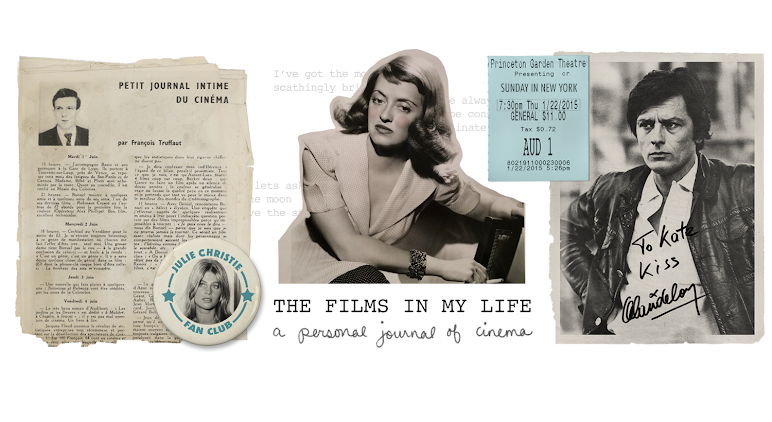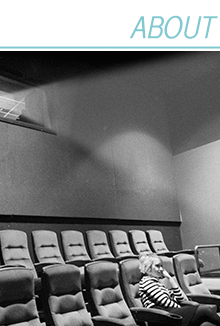
Back in 1994, the trailer for Milk Money seemed to be playing on a constant loop on my television. I was seven and the movie is rated PG-13, so it was a while before I ever got around to actually seeing it. But something about the previews always stuck with me and I grew up with a feeling of nostalgia for a movie I had never watched.
I've now seen it a couple times, and during my most recent viewing I was struck with a feeling of familiarity that wasn't nostalgia for the previews I saw as a kid, but something else entirely. It reminded me of Truffaut. Now I know this is going to sound sacrilegious to some, especially since the movie was widely panned and has a whopping 10% score on Rotten Tomatoes. But there is definitely a common thread. I don't know if it was intentional or accidental (I researched to see if Richard Benjamin ever spoke of Truffaut as an influence, but the only mention I could ever find was when Benjamin said he was filming The Last of Sheila at the same studio where Truffaut was filming Day for Night) but either way, if you watch this film as an homage to Truffaut, I think you'll see an entirely different picture and perhaps appreciate it a little more than you would have otherwise. I'm going to break this down into a few themes that are central to Truffaut's work --
1. A coming of age story
Milk Money centers mainly around a young adolescent boy, Frank, and his friends, as they navigate their confusing and exciting entry into adulthood. It's nearly impossible to watch scenes of them cycling together, about to get into mischief, and not see hints of Les Mistons. Their fascination with female anatomy in particular reminded me of the scene in Les Mistons when the kids smell Bernadette's bicycle seat.
In order to learn more about women, the kids decide to pull their milk money at school and save up to hire a sex worker in the city. I think this might seem a little weird or jarring for a movie made in the '90s, but recall in The 400 Blows, Antoine Doinel recounts his attempt to learn the ways of the world by seeing a sex worker who specializes in young boys (unfortunately for Antoine, she wasn't home the day he called on her.) And in The Man Who Loved Women, a flashback shows Bertrand succeeding where Antoine had failed.
There is a specific combination of childhood sweetness and adult themes that should feel incongruous, but somehow always works in Truffaut's films. And I think it works here, too. So many reviewers marveled at how this seemed to be at once a children's film and an R rated picture, and why didn't the director just make up his mind. But I think that's one of the things that is endearing about Truffaut's movies and it's endearing here, as well. If you think back to how you felt when you were 12 or 13, not entirely sure which world you belonged in and trying desperately to find out everything you could about the secrets of adulthood, it's a lot easier to relate to a movie that has one foot in the cradle and one in a King size bed.
2. Women are magic
It's difficult to think of a movie where Truffaut did not express his belief that women are magic. He was mesmerized by women, idolized them, and thought of them as wonderful enigmas. While this might be an outdated concept now (and might be part of the reason that Milk Money gets a bad rap) it's definitely woven into the fabric of the 1994 movie, too. Frank's father, Tom - played by Ed Harris - is a widow, and all that Frank knows about his mother was that she looked like Grace Kelly. He has put her on a pedestal, idolizing her memory for him and his son. When Tom meets and falls for V, he also sees her as Grace Kelly. She is a princess. Magic.
And the scene in the school where V helps Frank to teach female anatomy to his classmates also harkens back to the fascination with women's legs displayed in The Man Who Loved Woman (and, more broadly, throughout all of Truffaut's oeuvre.) It's a unique and strange combination of reverence and objectification.
3. Random gangster subplot!
Yes, in addition to the coming of age tale and Tom's love story with V, we also have a gangster subplot complete with a classic car chase and a bumbling tough guy. Waltzer's comical proclamations that he doesn't like things ("I don't like closets!") reminded me of Ernest and Momo's small talk after they've kidnapped Charles Aznavour's Charlie in Shoot the Piano Player.
Is it Richard Benjamin paying tribute to Truffaut paying tribute to the classic American gangster films of the 1930s? It certainly feels like it. Shoot the Piano Player was dragged at the time of its release for being similarly disjointed - is it a comedy? Is it a crime film? A romance? The combination of varying visual styles and genres was met with criticism, but I think the movie is so charming, and it's actually one of my favorite Truffaut films.
There are some other similarities as well - like when V is enchanted by the calm and safety of suburbia it reminded me of how Antoine Doinel made himself a part of Colette's family in Antoine and Colette, desperate to feel a sense of stability that was lacking in his own life. And the fact that were it not for the '90s clothing and a few pop culture references you could easily believe that Milk Money takes place in 1958. It's imbued with that same sense of timelessness that is a hallmark of most Truffaut films. Even in Jules and Jim, when world events mark a specific place in time, or all of the Antoine Doinel films that have a decidedly '60s or '70s look to them, you can watch the movie and think "when exactly does this take place?"
So am I saying this is as good as a Truffaut film? Not at all. Honestly, not even close. But seen as an homage to the master of the coming of age story, I think it at least deserves a reevaluation. If you can see and appreciate the elements that make a Truffaut movie charming and endearing, perhaps you'll find this movie charming and endearing as well.


















